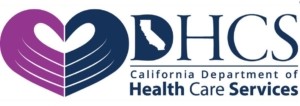Alcohol Addiction and Treatment Programs for Long Term Recovery
Drinking may be a problem in your life if this behavior is negatively affecting your career, education, relationships, and social activities. According to the National Institute on Drug Abuse, a person may be addicted to alcohol if they experience a pattern of use that meets 10 or 11 specific diagnostic criteria within a 1-year period. Those who meet 2 or 3 criteria are said to have a mild disorder, those who meet 4 or 5 criteria are said to have a moderate disorder, and those who meet 6 or more criteria are said to have severe alcohol use disorder.
Here are the 11 criteria of alcohol use disorder, according to the fifth edition of the Diagnostic and Statistical Manual of Mental Disorders (DSM-5, a diagnostic manual for clinicians). You or a loved one may need professional alcohol rehab treatment if 2 or more of the following criteria are being met:
- Drinking alcohol in larger amounts or over a longer period than initially intended
- Having a persistent desire or unsuccessful effort to reduce or control alcohol use
- Spending lots of time doing activities related to obtaining alcohol, drinking alcohol, and recovering from the effects of alcohol
- Having strong cravings or urges to use alcohol
- Using alcohol repeatedly despite being unable to fulfill major role obligations at work, school, or home
- Using alcohol repeatedly despite having persistent or recurring problems with social and interpersonal relationships that may have been caused by the effects of alcohol
- Giving up or reducing important social, occupational, or recreational activities due to alcohol use
- Using alcohol repeatedly in situations in which it is physically hazardous to do so
- Using alcohol repeatedly despite knowing it is causing physical or psychological problems that have likely stemmed from alcohol use
- Being tolerant of alcohol, defined by needing larger amounts to achieve intoxication or experiencing reduced effects when drinking the same amount of alcohol
- Experiencing withdrawal symptoms when reducing alcohol use, or using alcohol to relieve or avoid withdrawal symptoms
What to Look for with Alcohol Addiction Treatment
When you or a loved suffers from drug addiction, the most important quality to look for when seeking a rehab center is the need is understanding of what drives the addiction in the first place. That is to say, a compassionate, empathetic understanding of the patient and an appreciation of the latest research. Modern addiction science refutes the idea that addiction is a moral failing and shows that individualized support can help. The key elements of treatment programs at Dana Point Rehab Campus consist of our excellent staff, evidence-based treatment, and individualized care.
Evidence-Based Treatment
Addiction isn’t a problem with a one-size-fits-all cure. Rather, personalized programs aimed at physical and mental rehabilitation are the key to getting better. We’ve embraced the science on addiction and crafted a science-based, individualized suite of a care types.
Detox Support
When a person uses a substance heavily and for prolonged periods, their body becomes used to its presence. This poses a serious challenge to breaking the cycle of addiction, as attempting to abstain is difficult at the best of times.
In some cases, the withdrawal from attempting to quit all at once can cause dangerous, potentially fatal complications. Our detox therapy provides a recovering addict with a safe, secure location and specialized guidance to get through withdrawals. Once the process ends, there will be no more traces of the drug in their system.
Residential Care
In cases where a patient is struggling with recovery, residential care is an option. This form of rehab entails living full-time at our facility, where we’ll help build skills to maintain lasting sobriety. Our residential care includes detox support, therapy, support group referrals, and more as a comprehensive approach to treating addiction. This is an approach that the evidence backs up, as those who receive professional help consistently recover with more success than those who don’t. While addiction and withdrawal is a physical phenomenon, it’s often tied to issues where a therapist can help.
Intensive Outpatient Programs
Recovery is much more than just abstinence, and our goal is to make sure our patients recover. This is why we offer intensive outpatient care, either as a follow-up to other programs or a standalone service. In an intensive outpatient program, the patient lives at home while periodically checking in with us. This way, they can begin transitioning back into normal life with the help of a specialized support structure. Studies show that IOP care is effective in bridging the gap between drug abstinence and full addiction recovery.
Trained, Accredited, and Compassionate Staff
The greatest evidence-based practices are only as good as the staff who perform them. Here at Dana Point Rehab Campus, we maintain high standards of training and accreditation for our staff. We hire staff who truly care about addiction and want to play a part in helping people recover.
While the general public doesn’t fully understand the nature of addiction and what a struggle it is for the affliction, everyone that we hire does. Our rehab center is a supportive, understanding environment where you can rest easy knowing that people understand what you’re going through.
Alcohol Addiction Treatment at Dana Point Rehab Campus
We live to help people repair their lives and overcome drug addiction and the damage that it can cause. Give Dana Point Rehab Campus a call if you or someone in your life needs caring, evidence-based rehab treatment. We’re ready to answer your questions, make recommendations, and help take the first step toward recovery.







